Text
ASL INTERPRETING WOODRIDGE
We have a long term (6 months at least) ASL contract in Woodridge (WASHINGTON DC) to interpret for residents of a group home with developmental disabilities.
The interpretation sessions will focus around therapeutic recovery, structured activities, group sessions and art sessions. Interpreters are needed 14 hours a day, 7 days a week with premium pay after 5pm and on weekends.
We are looking for enough interpreters to pair up while filling all the required hours.
3 notes
·
View notes
Text
Burmese <> English Interpreters needed
Propio Language Services is seeking to contract with interpreters who have at least 1 year of experience for a variety of over the phone and on site medical and community consecutive interpreting in the Kansas City area. Rates vary based on contract and experience. Rates start at .25 cents per minute and can negotiate to around .47 cents per minute for rare languages. On site rates vary from $20 to $27 per hour. Highly credentialed interpreters in very rare languages can negotiate other rates.
Contractors must be available during regular business hours when medical facilities are open, but as an independent contractor, you may select or decline jobs based on your schedule.
Interpreters must be able to provide interpreter credentials, such as National Board for Certification of Medical Interpreters, CCHI, NAJIT or another scored interpreting assessment. If the interpreter cannot provide a scored credential or assessment, the interpreter is required by contract to take the ALTA interpreter assessment.
All interpreters are required to complete a mock assessment with our quality team and are subject to a background check. Additionally, on site hospital interpreters may be subject to drug screenings, immunizations and regular TB testing.
INDEPENDENT CONTRACTOR interpreters must adhere to any and all contract requirements, and requirements are subject to change per client.
Languages most commonly needed: Mandarin, Cantonese, Burmese, Chin, Hakka Chin, Arabic, Vietnamese, Somali, Karen, Karenni, Swahili, Korean, Haitian Creole, Polish, French, Amharic, Kinyarwanda, Farsi, Hmong, Russian, Bengali, Tigrinya and Hindi.
#Burmese#interpreter#language#mandarin#cantontese#chin#korean#hakka chin#arabic#vietnamese#somali#swahili#haitian creole#polish#french#amharic#kinharwanda#farsi#hmong#russian#bengali#tigrinya#hindi
0 notes
Link
Please review our Indeed page for current contract positions!
#indeed#propio#propio language services#propio-ls#languages#jobs#burmese#kurdish#kansas city#employment#contractor#translator#translation#mandarin#cantonese
0 notes
Text
"Farsi” vs “Persian”
Yesterday I wrote a post venting about how I feel when people use the term “farsi” when talking about Persian. In response, @languagenotebook (who recently started studying Persian) sent/asked me this:
Hey, just saw your post about Farsi/Persian and was wondering if you could explain which term is better to use. I’m very new to studying this language and didn’t know very much about it a few weeks ago, and I’ve basically been using the terms interchangeably. It seems like Persian is an umbrella term for the different dialects (Farsi, Dari, Tajik); is that correct? It also seems like their are some political motivations behind the different usages (Persian seems more common for people in the diaspora who are opposed to the regime that renamed the country Iran). Nothing I’ve read so far has privileged one term over another, so any insight you could offer would be appreciated. Thanks!
The use of the term “farsi” as opposed to “Persian,” or to mark the Iranian dialect as separate from the other two major dialects of Persian, is a topic for debate among learners, speakers, and academics (well, usually academics vs. another group). I know that even once I place out all of the logic behind the terminology, someone is going to disagree with me. So, I will start with, “It’s OK to disagree with me.” My perspective is from that as an academic. It’s the perspective of someone who studies historical linguistics (so I see where these terms come from); but it is also the perspective of someone working in academia (alongside native speakers) where we have (more or less) agreed on vocabulary. I have had multiple professors (native and non-native alike) who have lived in these regions and have worked for years and years in academia. So, this isn’t just my opinion. This is what people generally agree on in my field, and this is what I have been taught (over and over) by various professors from different places.
In Favor of the term “Persian”
So, the generally accepted term is “Persian.” There are two main reasons for this.
The first and simplest is that the Farhangestān—the governing body that “governs” over the language and grammar and words and things, like the Académie française or the Real Academia Española—has declared it so, as of 2005 (English or Persian, p. 152). In response, other institutions also agreed and promoted the use of Persian (or a form of it in that language) instead of using the term “farsi.” I should qualify this with the statement that I don’t find this to be a form of prescriptivism (because I’m sure someone will say that). While linguistic governing bodies do lay the foundation for prescriptivist ideology in many ways, they also do good work in promoting literacy and communication. If it were not for these bodies, we would not have standardized orthographies or acceptance of new terminology; thus, they do play an important role in certain arenas. In this particular case, their proclamation is important because it allows for a set term to be used in a specific way. If not, the clashing of terms can lead to miscommunications, difficulty finding resources or books (if you’re searching the wrong term), etc.
The second reason is a question of the presence of a preexisting term. When Greek authors wrote of the Persian Empire at the time of the Achaemenids, they used the term Περσίς (Persís) coming from the native Old Persian word pārsa- (𐎱𐎠𐎼𐎿); from this Greek word, there is a perfectly good word in English, and other European languages: Persian. Thus, we have the word Persian; and we have had it for centuries. It was, for the longest time, the only term for the Persian language. So, why an additional term was necessary doesn’t make sense. This leads to the next point, which is why “farsi” is incorrect.
Against the word farsi
The term “farsi” is simply the Persian word فارسی (fārsi) which means “Persian.” I will repeat this: this is the Persian word… meaning, it’s not an English one. When people walk around saying “Oh, I’m studying Farsi,” it’s like someone walking around saying “Oh, I’m studying Deutsch,” or “Oh, I’m studying français” or “Oh, I’m studying Zhōngwén,” etc, etc, etc. It’s the native demonym, not the English one. Farsi is the word for Persian in Persian. There are very few examples where we use the same native word in English as in the other language (I can’t think of one off the top of my head- wait… Hindi. Urdu. Bangla, though there is the English word Bengali. Punjabi, though it’s technically Panjabi. And maybe some more… like Thai. and Khmer, if you say that and not Cambodian. But these are also examples of languages that have come into contact with English far more recently than when the Persians came into contact with the Greeks). Overall though, the use of “farsi” would be considered unnatural or inappropriate since we have a native, English word for it.
Now, there is some sociological reasoning as to why native speakers also use the word “farsi” (because it isn’t just blatant illiteracy or something); but this is a topic that would go into questions of identity and terminology. It also explains why some Iranians prefer to identify as “Persian” and not “Iranian” (even though they might still insist on being speakers of “farsi”). If people are interested in this side of it, I can discuss it in another post; but I will qualify that with, (1) I’m not Iranian, an anthropologist or a sociologist. (2) I have only read articles and talked with Iranian friends and colleagues and cab share what I see what I perceive to be causes of this phenomenon.
In addition to these basic arguments for the use of “Persian” and against the use of “farsi,” there are also common misconceptions concerning what the word “farsi” indicates that people use to justify saying the word “farsi.” I’d like to address these here.
Farsi vs Parsi
Some people don’t even get into the question of “Persian vs. Farsi,” but instead want to debate the term “farsi” vs “parsi.” In Old Persian, there is the word pārsa- meaning “Persian.” This was an adjective that Persians used to identify their ethnicity (as distinct from other Iranian ethnicities, like the Medes, Bactrians, or Sogdians). This was the the term used for this ethnicity and their language from the earliest points in written Persian history. To this day, the descendant of this word, is used as the word (in Persian) for the language as well as the name of the Fars province in Southwestern Iran. At the time of the Islamic conquest of Iran, in the 7th century, Persians were acculturated into the (Arab-)Islamic Empire. At that time, much of the Iranian world was run bilingually. At first, the state was run purely in Arabic, and the people were forced to learn Arabic (particularly the educated elite). It was Iranians who standardized Arabic and its script, and it was Iranians who helped run the bureaucracy (a remnant of the Sassanian bureaucracy) of the caliphate in Baghdad. It wasn’t until the Samanids (the last ethnically Persian/Iranian empire of the time) that Persian began to be used as a court tongue, a practiced that continued under the ethnically-Turkic, Persian-cultured dynasties that followed. During this period of Arabization, the term “fars” and “Farsi” was adopted for the words “Pars” and “Parsi” because Arabic does not contain the letter /f/. Thus during the “2 Centuries of Silence” (when very little was written in Persian), use of the terms “Pars” and “Parsi” was lost; “Fars” and “Farsi” were what was written, and thus what continued to be written even when Persians began writing Persian again, now with the letter <p> (پ), and others, to represent all the sounds of Persian.
There are thus people who believe in the purification of Persian, meaning the removal of all the Arabic words from the language. Part of this, however, often includes use of the /p/, in places where the Persian word was originally a /p/ and not an /f/ (like Fars/Pars, Farsi/Parsi, pil/fil, etc).
Personally, I think that this argument is very different from the “Persian or Farsi” argument, but it often gets lumped in.
Farsi as a Dialect Indicator
Another thing that people often are told when discussing the terms “farsi” and “Persian” is that “Persian” is a general indicator of the language (meaning the shared language between Iran, Afghanistan, and Tajikistan), while “Farsi” refers purely to the Iranian dialect. While this is often the use of the term (especially in the United States where our own government and military considers knowledge of “Farsi,” “Dari,” and “Tajik” as three separate linguistic skills), it’s horribly inaccurate on the Persian side. This gets complex because of the political history of the region, but here’s a quick summary.
In Persian, the word for Persian is “farsi.” Thus, if someone asks you if you speak Persian (in Persian), they’ll ask you something like “فارسی حرف میزنید؟” (fārsī harf mizanid/mezaned?) depending on dialect, word choice, etc (i.e. you might also here, in Iran, “فارسی بلدین؟” fārsī baladin?).
While the Persian spoken (not always the written Persian) in Afghanistan can differ drastically from Iranian Persian, in speech they are regarded as the same language. The earliest Afghan constitution (1343 AH/1923 CE) states
از جمله زبانهاى افغانستان، پشتون و درى زبانهاى رسمى مىباشد.
“From among the language of Afghanistan, Pashto and Dari will be [are] the official languages.”
Here we see the use of the term “Dari” as the state language of Afghanistan, but to this day, Afghans will ask you the question I mentioned above (using the term farsi in Persian, and not dari). It is for this political reason that the term Dari is used in English to distinguish Afghan Persian from Iranian Persian. However, in actual used, Afghans seem to only use dari when they want to really emphasize their distinct dialect (or when speaking English), though they will often also use fārsi-ye afghāni (“Afghan Persian”). Similarly, Tajikistan’s constitution (written in 1994 CE) also uses the term “Tajik” as it’s official language, saying:
Забони давлатии Тоҷикистон забони тоҷикӣ аст.
“The language of the state of Tajikistan is the Tajik language.”
Thus, we see that these distinctions are mostly political. In spoken language, most Tajiks will ask someone if they speak Tajik, marking a distinction between Tajik (possibly because of the different script and the markedly russified nature of Tajik), while Afghans will ask you if you speak “Persian” (fārsī).
(Note: Personally, I think that Tajik—even in its standardized form—has justification to be called its own language, but there is also reason for it to be classified as a dialect of Persian; that, however, gets into questions of history and culture, so… ok. For more on the political use of the term Dari, you can find a quote from Nile Green’s “Afghanistan in Ink” here.)
In summary (of this point), in English people often use the term “farsi” to specify Iranian Persian, however, this is technically still inaccurate from a linguistic point of view. Personally, when I speak I talk about Iranian Persian, Afghan Persian (though I sometimes slip and say Dari), and Tajik.
——
Overall, in academia, we stick with Persian. If someone wants to discuss dialects, there are a number of other terms ranging from general (Iranian) Persian, “Eastern Dialects of Persian” (Afghan and Tajik) to more specific that mark a locale or a people group (Kaboli, Hazaragi, Esfahani, Qazvini, Northern/Southern Tajik etc etc etc). This is taken even to the level of elementary students, or work with native and heritage speakers, where we generally ask students to use the word Persian in English.
I am well aware that the use of a word also dictates its innate value as a separate term. Thus I don’t flip out when people say “farsi.” Personally, in my writing, I use “Persian;” and I generally expect that academic and pedagogical materials use the word “Persian” (this is why I make comments about language resources saying “farsi” or seeing an inconsistency between the terms). However, I don’t expect everyone to say “Persian.” I have native speaker friends who, even after sitting through conversations and lectures on this topic, continue to say “farsi” —and I’m not going to correct them. However, I will use the term “Persian” and I generally expect to see formal, academic, and pedagogical publications to do the same. Much of this is based on the reasoning I’ve mentioned above, but part of it is also because of the constant erasure of Afghan and Tajik dialects/speakers/cultures in Persian-language pedagogy; because of the connotation that “farsi” is “Iranian Persian” among English-speaking circles, this is only increased and made worse by the preference of the term “farsi” (which many native- and heritage-speakers of Iranian Persian will use) rather than a more unifying term like “Persian.”
So… this is my opinion on the matter. Again, I’m an academic. This is what we use in circles of Iranian Studies. I realize that people will disagree with me, and I’m sure that on tumblr I’ll receive some sort of flack for this. But at the same time, it’s a topic that I am constantly forced to return to with students, native-speakers, heritage-speakers, other bloggers, and students of Persian. So, I feel that I should just put out where I stand, which, again, is where much of academia stands and is the terminology that is generally used in more formal, academic, pedagogical (etc.) situations.
45 notes
·
View notes
Photo

#asanyevazi #persian #parsi #farsi #پارسی #فارسی # #ایرانی…
#asanyevazi #persian #parsi #farsi #پارسی #فارسی # #ایرانی Source by اصن یه وضی
2 notes
·
View notes
Text
#WednesdayWord
It’s very common to use the word مرسی [Mersi] in Persian to say Thank you, as in the French ‘merci’
3 notes
·
View notes
Link
Please review this job posting!
0 notes
Photo
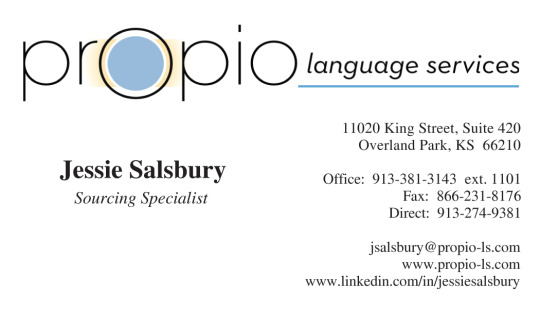

Virtual Business Card!
We are seeking interpreters in Burmese, Somali, Hakka Chin, Mandarin, Karen, Swahili, Vietnamese, Haitian Creole, Korean, Nepali, Polish, French, Cantonese, Amharic, Arabic, Kinyrawanda, Farsi, Hmong, Russian, Bengali, Karenni, Tigrinya, Hindi, Gujarati and Portuguese. Please pass along my information to anyone who would be interested in interpreting in these languages! We do interpretation in over 200 languages, so if your language is not listed, please contact me. We do some translation work for our clients, but our main focus is phone and on site interpretation.
2 notes
·
View notes
Video
youtube
Consecutive Interpreting is an art form in itself. Listening to this video while I email interpreters.
#interpreting#note taking#roche#roche technique#interpreting skills#propio#propio language services#propio-ls#propio ls
1 note
·
View note
Link
#language#linguistics#propio language services#propio-ls#propio#dying languages#endangered languages
11 notes
·
View notes
Video
Being able to communicate is so important. This is so lovely!
youtube
2 notes
·
View notes
Photo


Virtual Business Card!
We are seeking interpreters in Burmese, Somali, Hakka Chin, Mandarin, Karen, Swahili, Vietnamese, Haitian Creole, Korean, Nepali, Polish, French, Cantonese, Amharic, Arabic, Kinyrawanda, Farsi, Hmong, Russian, Bengali, Karenni, Tigrinya, Hindi, Gujarati and Portuguese. Please pass along my information to anyone who would be interested in interpreting in these languages! We do interpretation in over 200 languages, so if your language is not listed, please contact me. We do some translation work for our clients, but our main focus is phone and on site interpretation.
#jessie salsbury#propio language services#interpreter#job search#sourcing speacialist#interpreter jobs
2 notes
·
View notes
Photo
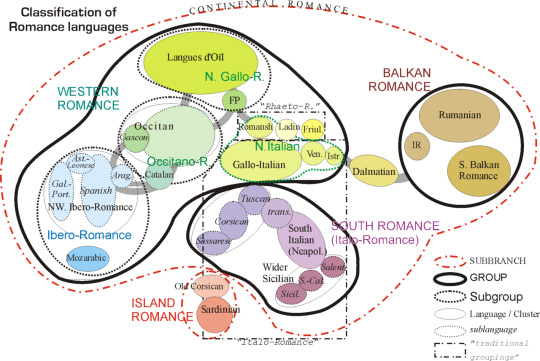
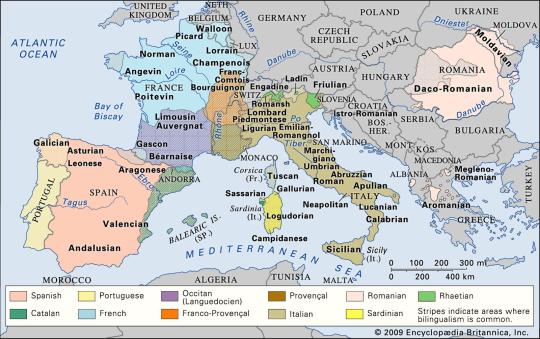
Classification and distribution of Romance languages.
“Romance languages, group of related languages all derived from Vulgar Latin within historical times and forming a subgroup of the Italic branch of the Indo-European language family. The major languages of the family include French, Italian, Spanish, Portuguese, and Romanian, all national languages. Catalan also has taken on a political and cultural significance; among the Romance languages that now have less political or literary significance or both are the Occitan and Rhaetian dialects, Sardinian, and Dalmatian (extinct), among others. Of all the so-called families of languages, the Romance group is perhaps the simplest to identify and the easiest to account for historically. Not only do Romance languages share a good proportion of basic vocabulary—still recognizably the same in spite of some phonological changes—and a number of similar grammatical forms, but they can be traced back, with but few breaks in continuity, to the language of the Roman Empire.” - Encyclopaedia Britannica
1K notes
·
View notes
Photo




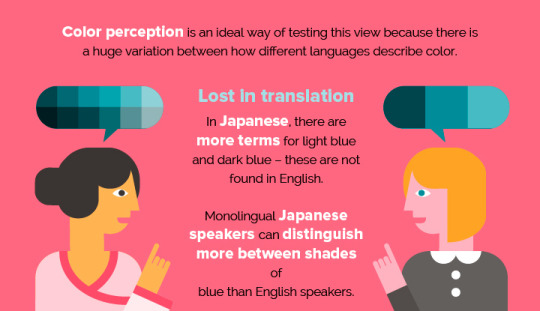
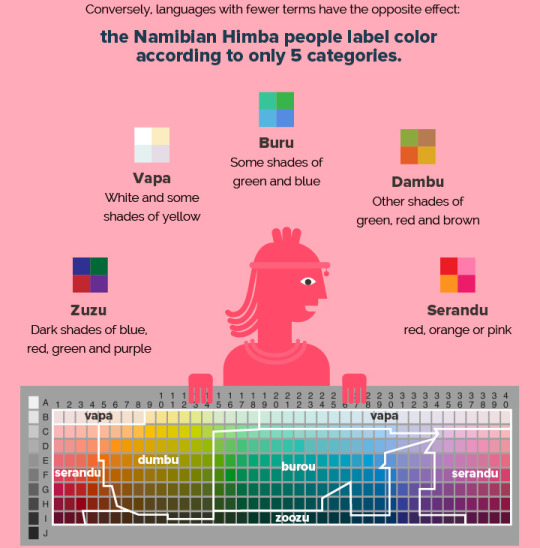

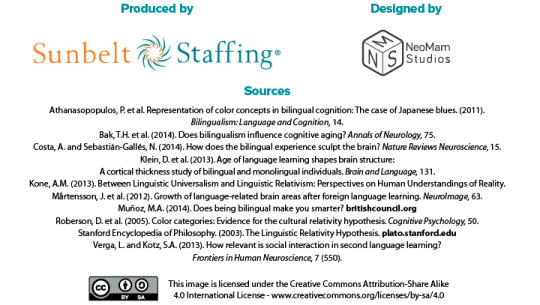
How Learning A New Language Changes Your Brain And Your Perception
Learning a foreign language opens us up to new experiences, work opportunities, and allows us to meet people we may never have otherwise. More than that, research has shown learning a language can also physically change brain structure and adjust perception.
When we learn a language, we create new neural pathways in our brain, which can lead to noticeable changes. The left hemisphere is generally believed to be the logical part of the brain and is where many of our language skills originate. However, a 2012 Swiss study observed that learning a foreign language later in life is associated with thickening of the cerebral cortex — a layer of neurons specifically responsible for memory, thought, consciousness and, of course, language. This increased thickness can lead to better memory and sharper thinking later in life.
Learning a new language doesn’t just change the physical makeup of the brain. Based on a theory known as linguistic relativity, learning a new language can also change the way we see the world. This is specifically true in relation to our color perception. For example, Japanese speakers have far more words to describe the color blue, and as a result are generally able to see more shades of blue than English speakers. On the other side of the spectrum, the Himba tribe of Namibia in Southern Africa have only five words to describe all the colors in the world. Researchers have observed that, without a word for the color blue, the Himba struggle to tell it apart from green — an easy feat for English speakers.
Infographic by the team at Sunbelt Staffing
12K notes
·
View notes
Link
We are seeking interpreters in Burmese, Somali, Hakka Chin, Mandarin, Karen, Swahili, Vietnamese, Haitian Creole, Korean, Nepali, Polish, French, Cantonese, Amharic, Arabic, Kinyrawanda, Farsi, Hmong, Russian, Bengali, Karenni, Tigrinya, Hindi, Gujarati and Portuguese. Please pass along my information to anyone who would be interested in interpreting in these languages!
#interpreters#interpreting#jobs#kansas city#propio#propio language services#propio-ls#hakka chin#chin#somali#burmese#mandarin#karen#swahili#vietnamese#haitian creole#korean#nepali#polish#french#cantonese#amharic#arabic#russian#farsi#hindi#portuguese
0 notes
Text
Burmese!
reblog this with languages you think i should post more about
i’ll try to reblog or make at least one post about each language suggested
5 notes
·
View notes
Text
Interpreting 101
Interpreting and translating 101
Jessie Salsbury, Propio Language Services
Many language students contemplate interpreting, or translating, as a career. At first, the career path can seem daunting and confusing. I have compiled some resources that I found helpful.
Definitions
Interpreting: This is verbal. Interpreting is conveying the sentiment or the phrasing of what someone is attempting to communicate, and is rarely conveyed word for word. Interpreters have to be able to smoothly interpreter both from source to target.
Translating: This is written. Translating specialists typically work best from one language to another. Translators sometimes specialize in full translation or editing only.
Simultaneous interpreting: Interpreting as the source speaker is speaking, via whisper or headset or another methodology. This is the most common type of interpreting for conferences or large meetings.
Consecutive interpreting: Interpreting with a pause between phrases. This is over the phone interpreting. The source speaker gives a sentence or phrase, pauses to allow the interpreter to interpret, then the other speaker responds.
When first starting as an interpreter, I found it best to start with consecutive interpreting with one subject. I partnered with a company, an insurance company, to interpret for them for car accidents and claims. I was able to slowly ease into interpreting, rather than being required to interpret for all types of calls and variety of vocabulary.
After I interpreted with that company, and I was familiar with consecutive interpreting, I branched out with interpreting in person as a volunteer and with consecutive interpreting with homeowners’ claims. As a new interpreter, begin to learn your craft, by volunteering or starting to interpret with one type of call or contract, but then branch out by seeking various credentials or professional designations to prove the different types of interpreting that you can perform. Start small, and then branch out in vocabulary and designations that will make you more marketable. Be sure and include each interpreting job on your CV so your potential clients are aware of all your experiences and they are comfortable with your expertise.
More information:
https://en.wikipedia.org/wiki/Language_interpretation
Jessie Salsbury | Sourcing Specialist | Propio Language Services [email protected] | (913)-274-9381www.linkedin.com/in/jessiesalsbury
2015 Ingrams - Top 100 Growth Firms in Kansas City2015 Inc 500/5000 - Fastest Growing Private Companies in America2015 Common Sense Advisory - Top 40 Language Service Providers in North America
#interpreting#interpreting 101#jessie salsbury#propio language services#propio-ls#languages#translation versus interpretation#so you want to be an interpreter?
5 notes
·
View notes